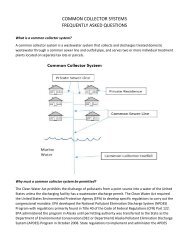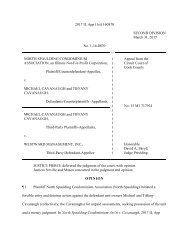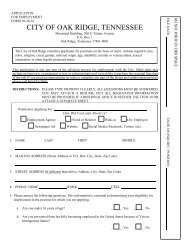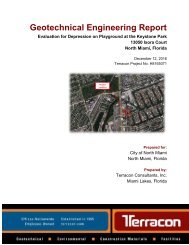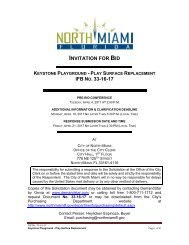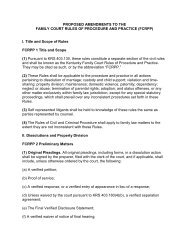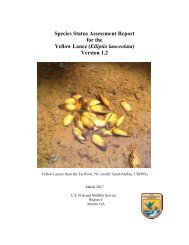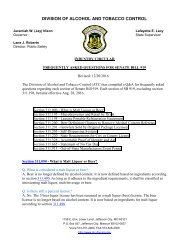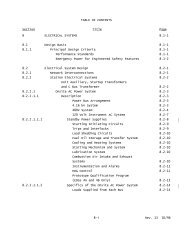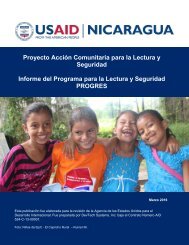COMMUNITY DISPUTE RESOLUTION IN TIMOR-LESTE
PA00MJQC
PA00MJQC
You also want an ePaper? Increase the reach of your titles
YUMPU automatically turns print PDFs into web optimized ePapers that Google loves.
Committee position set out above at page 14). The latter procedures would present a number of<br />
difficulties (for example, how would a court know after the fact whether appropriate procedures had<br />
been followed in the local mechanism?). And because of the distances involved in accessing the formal<br />
courts for this purpose, it would also likely serve to defeat the intended accessibility and efficiency<br />
benefits of using local mechanisms.<br />
In addition to these potential challenges in establishing local courts of criminal jurisdiction, it is also<br />
important to recall the specific human rights standards which are applicable in criminal proceedings,<br />
both under the Timorese Constitution and under international law. Implementing these rigorous<br />
standards at the local level would prove extremely difficult. It would likely require the involvement of<br />
lawyers and/or paralegal advisors to community leaders. Already there are insufficient numbers of<br />
either to assist in the formal sector.<br />
These factors indicate that it would be preferable to adopt a more minimalist approach to regulating<br />
the informal justice sector. The existing and well-established use of community leaders to assist in the<br />
settlement of low-level disputes could be maintained. This would not require substantial structural<br />
changes. Improvements in linkages to the criminal justice system could largely be achieved through<br />
minor legislative amendments, the continuation of community legal education 100 and effective<br />
systems within judicial institutions. Continuing efforts would be required in order to ensure that<br />
procedures are in fact consensual, and also that basic standards are met.<br />
At the same time, more robust steps may be needed to counter the trend towards using local<br />
regulations to create criminal sanctions adjudicated within communities. Since these local regulations<br />
are already arguably without legal force under the Constitution, such steps need not principally<br />
require further legislation. Rather, advocacy and community education should be directed towards<br />
local leaders (and the civil society groups working with them) with a view to discouraging local<br />
regulations which penalize and punish specified conduct. Efforts should also be made to ensure that<br />
money collected through local authorities in any capacity is properly accounted for. Suku Law 9/2016<br />
now requires xefes to report on “revenue collection” to the relevant Municipality. This should be<br />
interpreted as including any money paid through the suku or persons working with it, including fines,<br />
and this should be made clear to suku councils, whether through law and/or education.<br />
Current proposed laws on alternative dispute resolution<br />
While the government has put on hold plans to regulate traditional and local justice or establish<br />
criminal jurisdictions in communities, it has produced two draft ADR laws, one on mediation by the<br />
MoJ and one on arbitration, mediation and conciliation by the Office of the Coordinating Minister for<br />
Economic Affairs (MECAE). It is presently not clear which draft will be preferred and information from<br />
within the GoTL suggests that a new proposal may be developed incorporating aspects of both.<br />
While the principal intention of these proposed laws may be to regulate commercial dispute<br />
resolution, there is no doubt that they will also impact on community resolutions. A detailed analysis<br />
of these laws is premature as a draft for consultation has yet to be made public. However, because a<br />
law in this area will affect the informal justice sector, there is merit in in identifying potential issues to<br />
avoid.<br />
(1) Terminology and scope of application<br />
Both draft laws define their scope by reference to terms used in ADR (“mediation”, “conciliation”,<br />
“arbitration”). While such terms may be useful in respect of commercial disputes, their helpfulness<br />
when dealing with community mechanisms is doubtful. Few of those involved in such procedures<br />
(including legal aid lawyers) understand the distinction between these mechanisms. Community<br />
leaders are likely to find it difficult to identify whether they are engaged in a mediation, a<br />
conciliation or an arbitration. And indeed this question will often not be simple to resolve.<br />
100<br />
Significant work has been done in this area, including the community training and other forms of legal<br />
outreach undertaken by Ba Distrito grantees. However, achieving a change in practices on a large scale<br />
requires sustained efforts in all parts of the country.<br />
21



